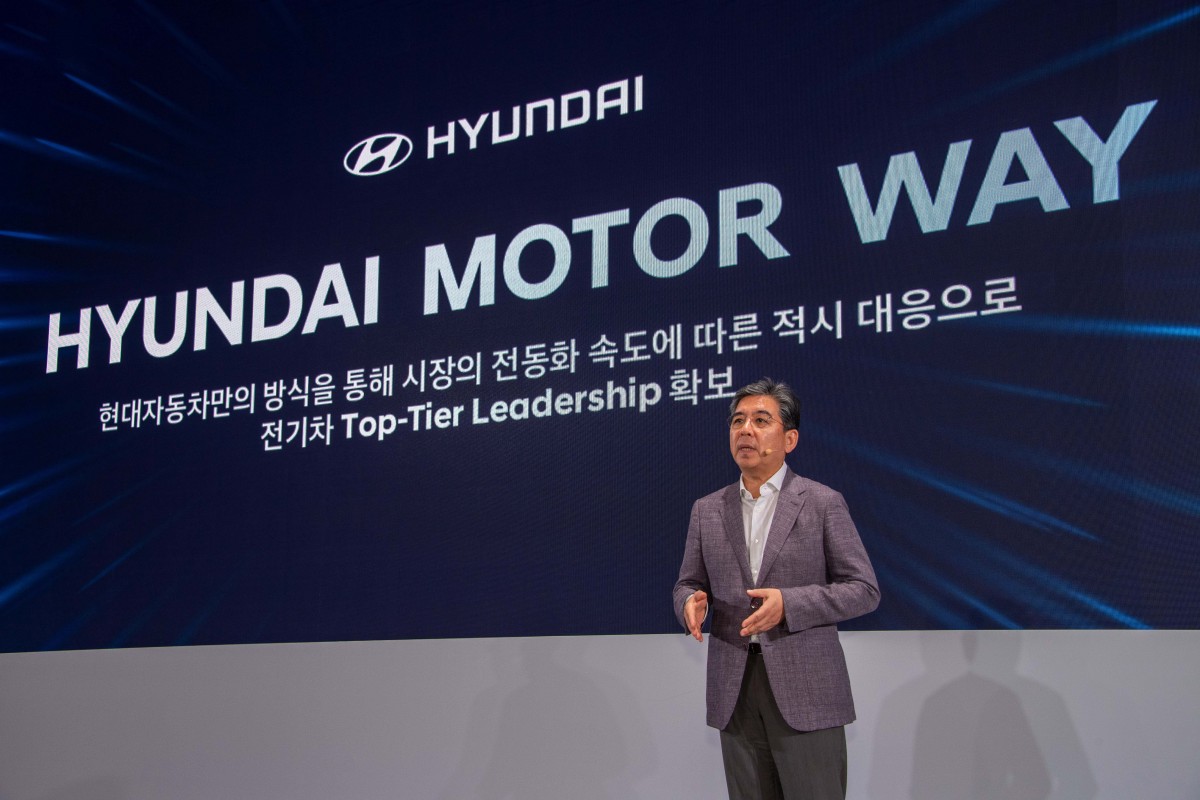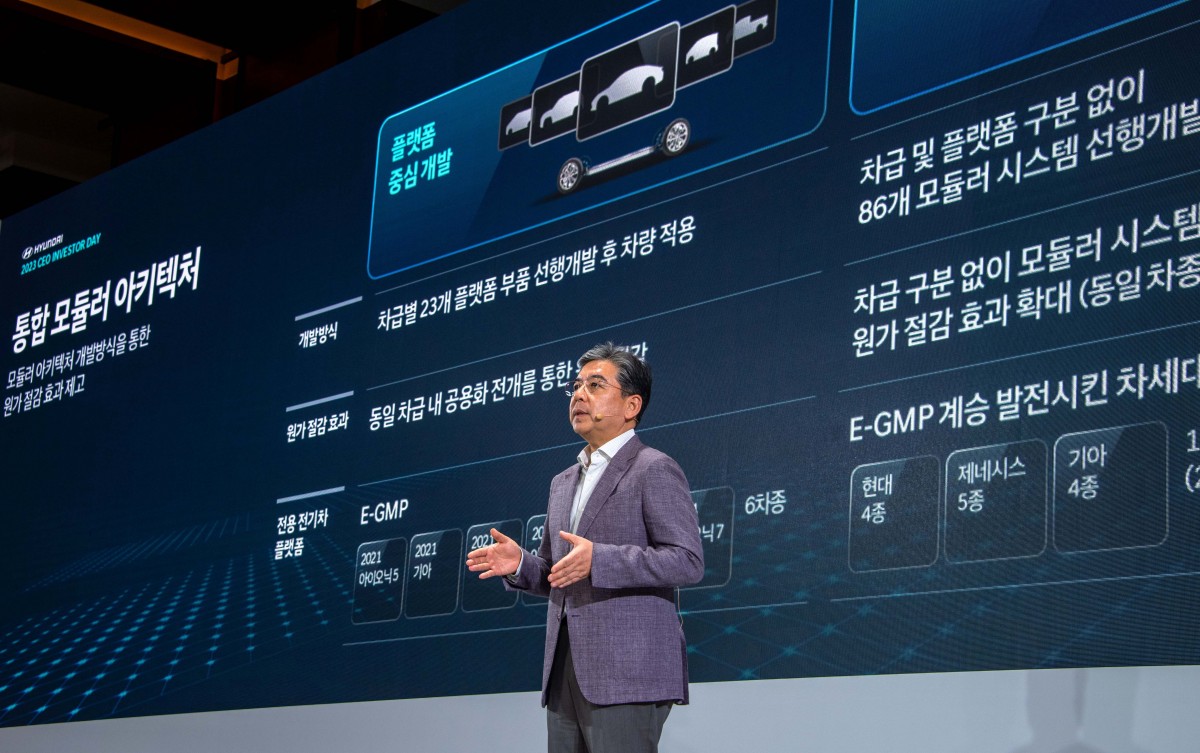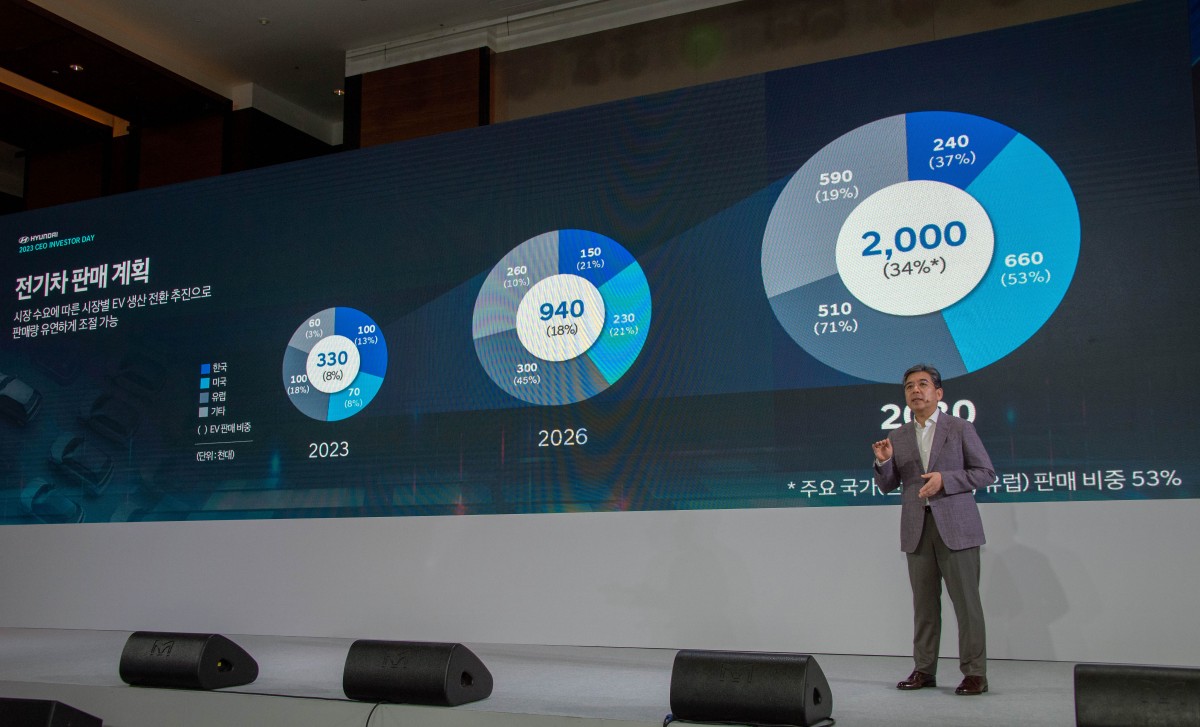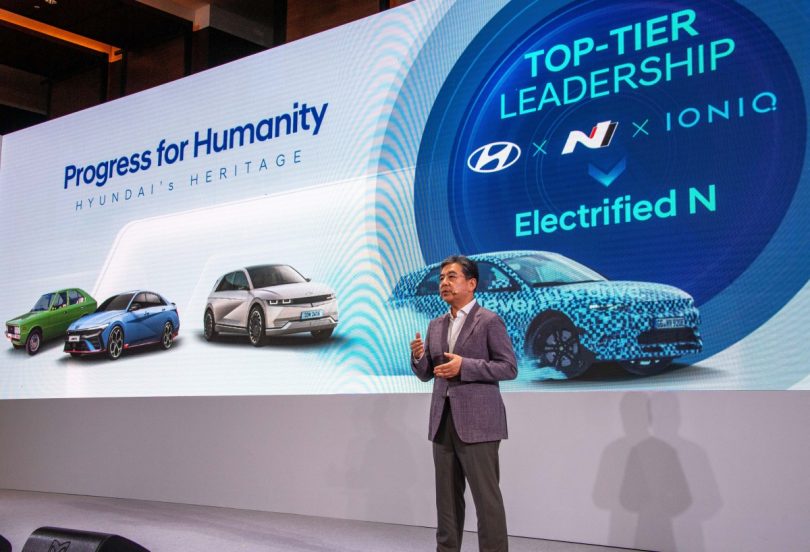Hyundai has revealed the future plans of the Korean carmaker at its Investor meet. Key highlights include closure of a plant in China, new investment in EV division, development of EV batteries and more.
Hyundai’s plans in China
Hyundai will be closing another plant in China. This makes it two plant closures in 2 years. Further, the Korean carmaker plans to offer these on sale as well. These closures have brought down the active plants from five at its peak to current two. These two units will now also make export vehicles for emerging markets apart from just the domestic market.
It was also said that Hyundai will now focus on premium or higher-end models in the world’s largest car market. These would include SUVs and Genesis branded vehicles.
Electric vehicle sales target and investments
The Korean carmaker has set an ambitious target of selling 2 million EVs per year by 2030. The previous target was 1.87 million. The target was revised due to higher sales than expectations and rising awareness of electric vehicles.
These numbers mean 30 percent of all Hyudais will be now electric. For 2030, the EVs would make upto 34 percent of the total sales.
Furthermore, for this expansion to happen, Hyundai has committed to invest US$8.5 million per year till 2032 towards research and development and capital investment. BY the year 2026, ICE sales would start declining as production of EVs is ramped up.
Updates in the Battery tech
Hyundai currently has a separate battery development unit with its Research and Development Center. Apart from this, the carmaker will invest more than US$ 7 billion in the next 10 years to develop new batteries.
For 2023, the company plans to launch a new hybrid vehicle with batteries co developed with SK On. Hyundai aims to develop lithium-iron-phosphate (LFP) batteries. The first car to use them will be launched sometime in 2025. LPF batteries are cheaper as well and Hyundai plans to deploy them in emerging markets first.
New EV platform
Hyundai is focusing on a new and more efficient EV platform – Integrated Modular Architecture (IMA). Currently, cars like the Ioniq are based on the Electric-Global Modular Platform (E-GMP). The IMA platform will spawn 13 new models across Hyundai, Kia and Genesis brands in the next 7 years.
This new platform will also help the company achieve margins of 10 percent on EVs. currently this figure is at 9.5 percent.



Also Read – Hyundai Exter production begins in India, launch on July 10, 2023.


